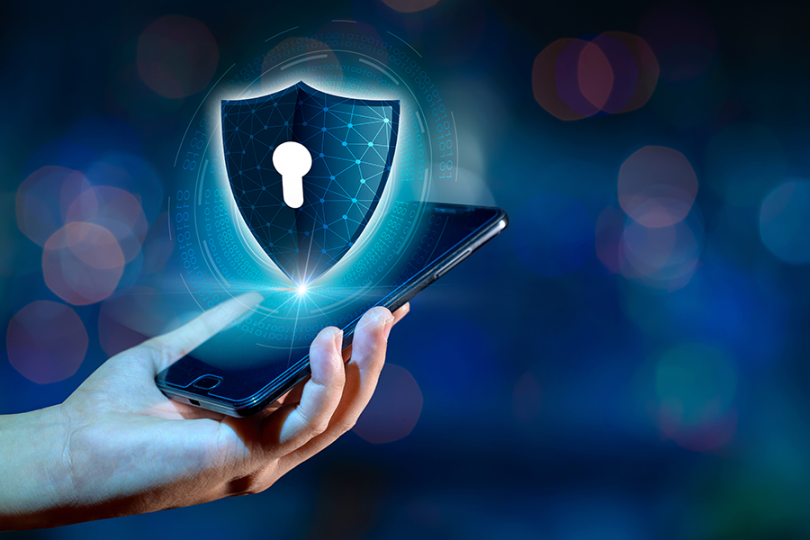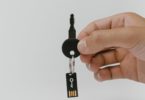Technology has brought us a whole new level of convenience. It made many parts of our life easy. Without technology, it would be difficult for everyone to go about their daily activities.
Because convenience is what we prefer, we have changed how we use the technology available to us. In the past computers and desktops have been our go-to gadgets, but now more people are using their mobile phones than ever before.
In 2019, there were 3.2 billion mobile phone users, and it will increase to 3.8 billion in 2021.
Since we often use our smartphones, there has been an increase in the use of social media and the number of apps created by developers.
Traditionally, cybersecurity experts focused on computer security and not mobile phone security. This is giving hackers new opportunities to commit cybercrimes.
Similar to desktop cyberattacks, smartphones experience the same. Here is a list of cyber attacks that small business owners need to be vigilant about protecting themselves against when using their mobile phones.
Common Mobile Device Cyberattacks
Unsecured Wi-Fi
People like connecting to free Wi-Fi offered in public places such as coffee shops. These free Wi-Fi connections are unsecured. Anyone can access to your data once you try to log in to any of your accounts. Hackers can use public Wi-Fi to spy on your login credentials.
Data leakage
Data leakage is usually unintentional. It often happens when downloading apps that collect users’ data and send them to other servers. Some free apps will ask to access a part of your mobile phone, such as your contacts, photos or email. Make sure to check your apps to ensure that you are happy with what information you are sharing with them.
Phishing
It’s possible to check your emails many times a day on a mobile phone. Due to the small screen size of a mobile phone, and the user’s hurried behaviour, mobile phone users may not recognize an illegitimate email.
Smartphone users are not only victims of email phishing, but there are also phishing apps. These are apps designed to look like a real app, but instead they collect login credentials and vital information.
Spyware
These are programs that are installed in mobile phone devices by someone to collect data about your internet usage and location. Sometimes the data collected is simply used to send annoying advertisements to users. But there are times that the spyware is installed by an employer or spouse to spy on your whereabouts, phone usage, or activities.
Network spoofing
This is where a hacker makes a fake Wi-Fi connection that requires a login. Some people will use the same email and password they use to access their work and personal information. The hacker will then use the supplied credentials to try and access that person’s personal accounts.
These mobile phone cybercrimes are becoming more common. That’s why it is crucial to know the ways in which you can protect yourself from fake apps, programs, or unsafe connections.
Implementing simple steps to protect your data from hackers is important. Keep reading to find out some simple tips on how you can protect your mobile device.
Tips to Protect Your Mobile Phone
Lock your mobile phones
It’s best to secure your mobile devices with pins, passwords, patterns, or fingerprints. In the event that you lose your mobile phone, members of the public won’t be able to access your mobile device’s content easily. Make sure that your phone automatically locks after a few minutes of inactivity, and make sure that it bars further attempts at unlocking after 3 unsuccessful attempts.
Secure your apps
Password-protect as many of your apps as you can. This way, if someone guesses your phone’s pin code, they still won’t be able to access some of your apps.
Use strong passwords and make sure that you use different ones on each of your apps.
Be careful when downloading apps
Since apps are often becoming a gateway for hackers to steal information, it’s best to download apps on official app stores. Don’t download apps from third-party websites.
Avoid connecting to free or public Wi-Fi
It may be tempting to connect to a free or public Wi-Fi connection. Even though it can be more expensive, it is better to use mobile data than give hackers the chance to steal into your login credentials.
If you really need to connect to public Wi-Fi, don’t visit websites that require login credentials that are personal or for business. If needed, use a VPN to encrypt your data.
Install mobile security software
Like computers, you should install security software for your mobile phone devices. It will protect your device from possible malware or viruses, and it will also scan your device to check for any potential threats.
There are free and paid versions of security software, but opting for paid plans will give you maximum protection.
Update your devices system or apps
Updating all your apps and your device’s system when required is really important. This updates with fix bugs or patch parts of the apps that are vulnerable to threats.
Avoid jailbreaking or rooting your mobile phones
It’s great to have access to all the things you want on your mobile device, but this will place your device and data in trouble. Jailbreaking or rooting your phone will remove the manufacturers’ safeguard towards having access to apps stores that contain potential risks.
Use two-factor authentication for your accounts
On top of using a secure password for your account, make sure to activate your accounts two-factor authentication (2FA).
Having 2FA will double the security of your account. After signing in with your password, it will require you to provide a code sent to you via email or text, or a fingerprint.
Avoid responding to suspicious emails
If you have received emails offering you a large amount of money or asking you to urgently log in to a link, they are most likely traps or scams.
If you think an email from your bank looks suspicious, first contact your bank by going to their official website to get their email address or phone number.
Never click on a link that seems too good to be true, no matter how tempting it may be.
Not only through email, but also avoid calling or clicking on the link sent to you via text messages.
Install an app to locate your device
There are apps such as Find My iPhone or Find My Device that helps locate your mobile device. Not only can they help you find a missing or stolen device, you can also access your phone by locking your device or erase all its content before someone gets to it.
Avoid browsing on unsafe websites
Don’t browse on unprotected websites, especially when it requires you to create an account. How will you know if it’s unsecure? Typically a secure website will use a HTTPS server protocol, whereas one without sufficient encryption will use HTTP.
Wrap up
You don’t have to become one of those people whose data has been compromised due to their own negligence. You can protect your mobile devices using the simple tips above. Also, knowing about some different mobile phone cyber crimes will give you an idea of what you can do and not do to be a victim of one of these attacks.
“The opinions expressed by BizWitty Contributors are their own, not those of BizCover and should not be relied upon in place of appropriate professional advice. Please read our full disclaimer."







